第45章
It may be said that the solution here proposed involves great difficulty in itself and is scarcely susceptible of a lucid exposition.But is any other solution that has been attempted, or that may be attempted, easier and more intelligible? Rather might we say that the dogmatic teachers of metaphysics have shown more shrewdness than candour in keeping this difficult point out of sight as much as possible, in the hope that if they said nothing about it, probably no one would think of it.If science is to be advanced, all difficulties must be laid open, and we must even search for those that are hidden, for every difficulty calls forth a remedy, which cannot be discovered without science gaining either in extent or in exactness;and thus even obstacles become means of increasing the thoroughness of science.On the other hand, if the difficulties are intentionally concealed, or merely removed by palliatives, then sooner or later they burst out into incurable mischiefs, which bring science to ruin in an absolute scepticism.
Since it is, properly speaking, the notion of freedom alone amongst all the ideas of pure speculative reason that so greatly enlarges our knowledge in the sphere of the supersensible, though only of our practical knowledge, I ask myself why it exclusively possesses so great fertility, whereas the others only designate the vacant space for possible beings of the pure understanding, but are unable by any means to define the concept of them.I presently find that as I cannot think anything without a category, I must first look for a category for the rational idea of freedom with which I am now concerned; and this is the category of causality; and although freedom, a concept of the reason, being a transcendent concept, cannot have any intuition corresponding to it, yet the concept of the understanding- for the synthesis of which the former demands the unconditioned- (namely, the concept of causality) must have a sensible intuition given, by which first its objective reality is assured.Now, the categories are all divided into two classes- the mathematical, which concern the unity of synthesis in the conception of objects, and the dynamical, which refer to the unity of synthesis in the conception of the existence of objects.The former (those of magnitude and quality) always contain a synthesis of the homogeneous, and it is not possible to find in this the unconditioned antecedent to what is given in sensible intuition as conditioned in space and time, as this would itself have to belong to space and time, and therefore be again still conditioned.Whence it resulted in the Dialectic of Pure Theoretic Reason that the opposite methods of attaining the unconditioned and the totality of the conditions were both wrong.